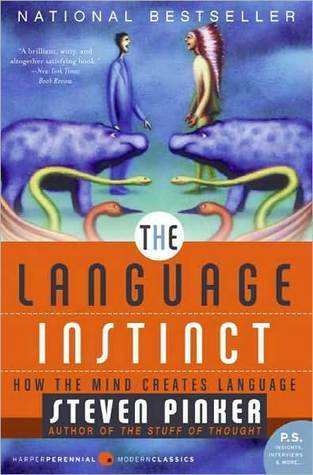More on this book
Community
Kindle Notes & Highlights
Read between
July 9 - July 19, 2023
Language is not a cultural artifact that we learn the way we learn to tell time or how the federal government works. Instead, it is a distinct piece of the biological makeup of our brains.
First, virtually every sentence that a person utters or understands is a brand-new combination of words, appearing for the first time in the history of the universe. Therefore a language cannot be a repertoire of responses; the brain must contain a recipe or program that can build an unlimited set of sentences out of a finite list of words.
The second fundamental fact is that children develop these complex grammars rapidly and without formal instruction and grow up to give consistent interpretations to novel sentence constructions that they have never before encountered.
The crux of the argument is that complex language is universal because children actually reinvent it, generation after generation—not because they are taught, not because they are generally smart, not because it is useful to them, but because they just can’t help it.
The language that results when children make a pidgin their native tongue is called a creole.
The idea that thought is the same thing as language is an example of what can be called a conventional absurdity: a statement that goes against all common sense but that everyone believes because they dimly recall having heard it somewhere and because it is so pregnant with implications.


